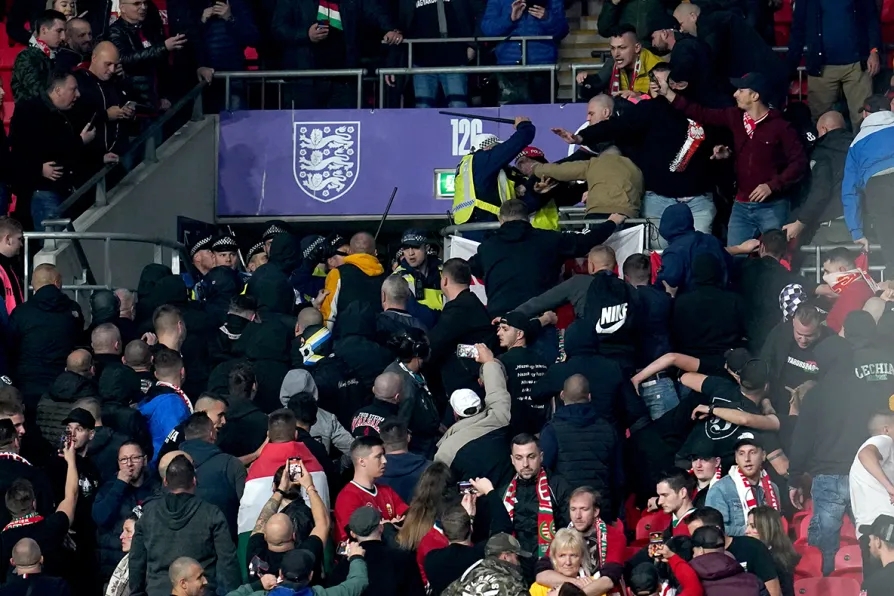
 Hungary fans clash with police officers in the stands during the FIFA World Cup Qualifying match at Wembley Stadium, London
Hungary fans clash with police officers in the stands during the FIFA World Cup Qualifying match at Wembley Stadium, London
I WAS at Wembley stadium as a punter this week for England v Hungary.
It was a treat for my son who turned 15 the day before. For such a lively, sporty boy, Covid has been tough for him – and countless other youngsters.
It can’t have been easy stuck indoors for so long, with such uncertainty. About life, about school, about the future.

The ban on Maccabi Tel Aviv fans was based on evidence of a pattern of violence and hatred targeting Arabs and Muslims, two communities that have a large population in Birmingham — overturning the ban was tacit acceptance of the genocidal ideology the fans espouse, argues CLAUDIA WEBBE

Morning Star international editor ROGER McKENZIE reminisces on how he became an Aston Villa fan, and writes about the evolution of the historic club over the years












